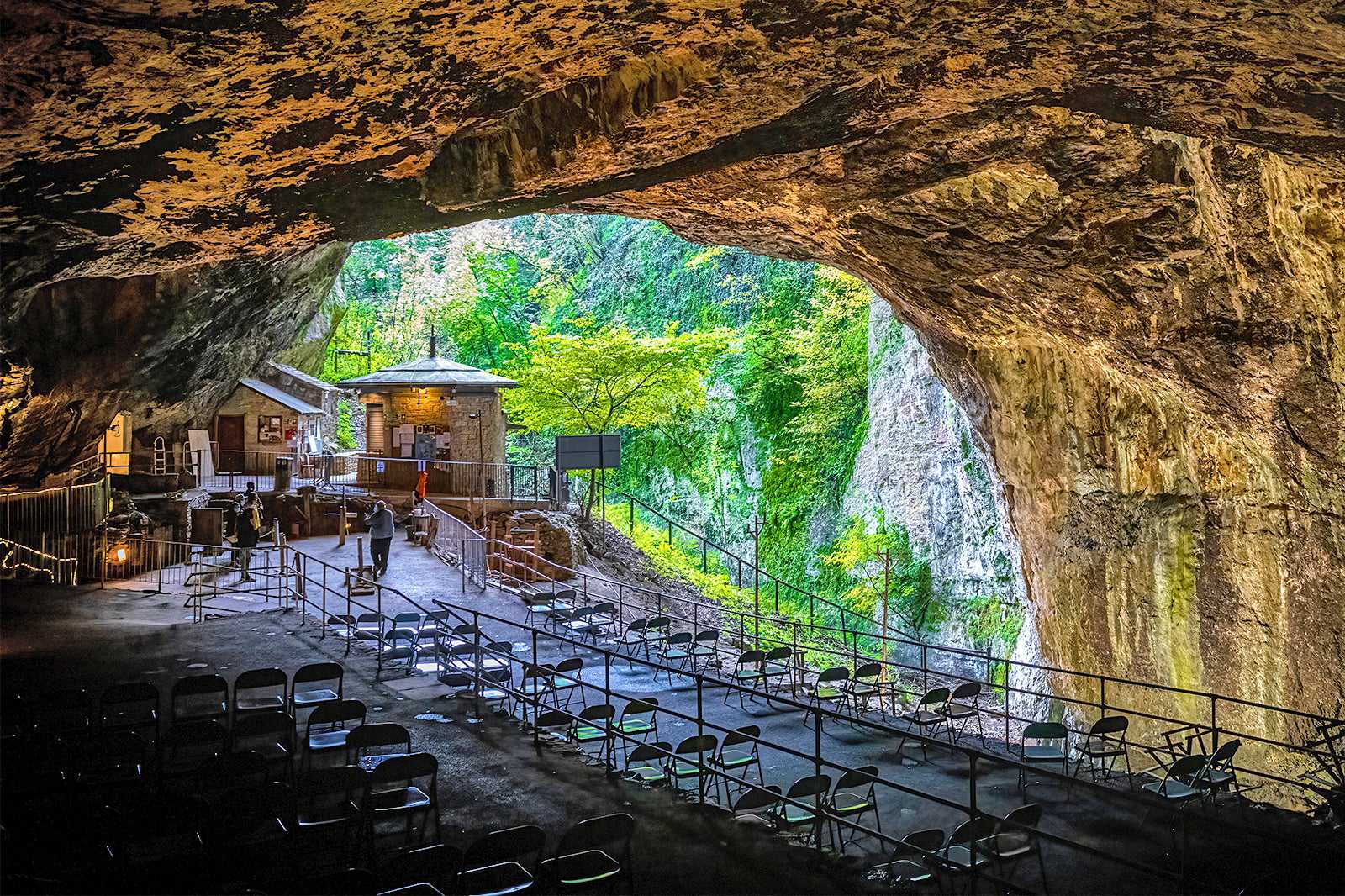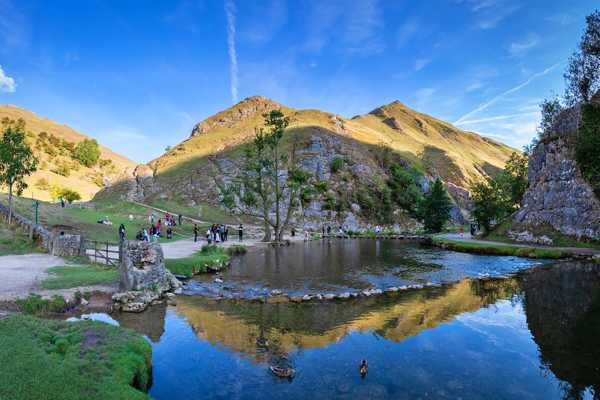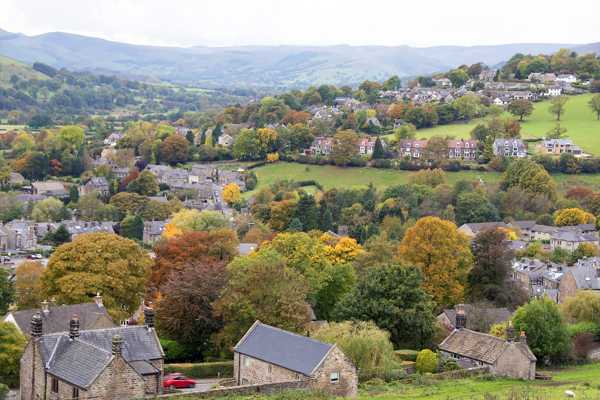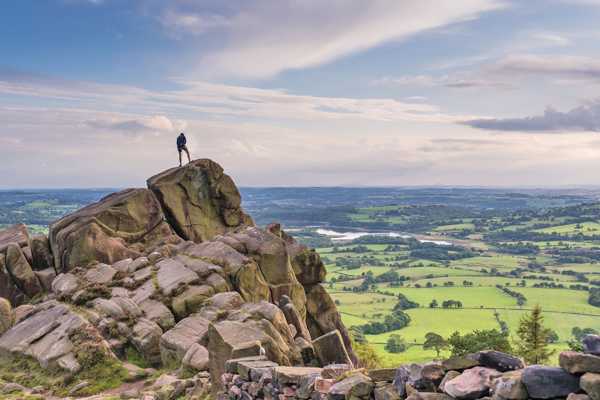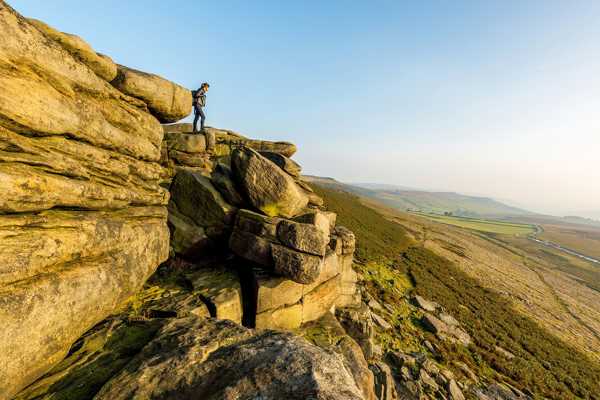Our guide to weird and quirky things to do in Peak District is great for those who want to stray away from typical tourist trails. This upland area in England is known for its many natural and historical attractions, ranging from prehistoric caverns to military museums. You can visit a rural village to witness rituals dating back to pagan times or pay respects to a well-loved sheepdog from the 1950s.
The Peak District has many surprises, so it’s worth allocating some time for a road trip to these unusual landmarks. Along the way, you’ll be treated to spectacular views of valleys, moorlands, and mountain peaks. Check out our list of things to do that’s unusual in the Peak District.
- 1
Blue John Cavern
Natural tunnels filled with semi-precious stones
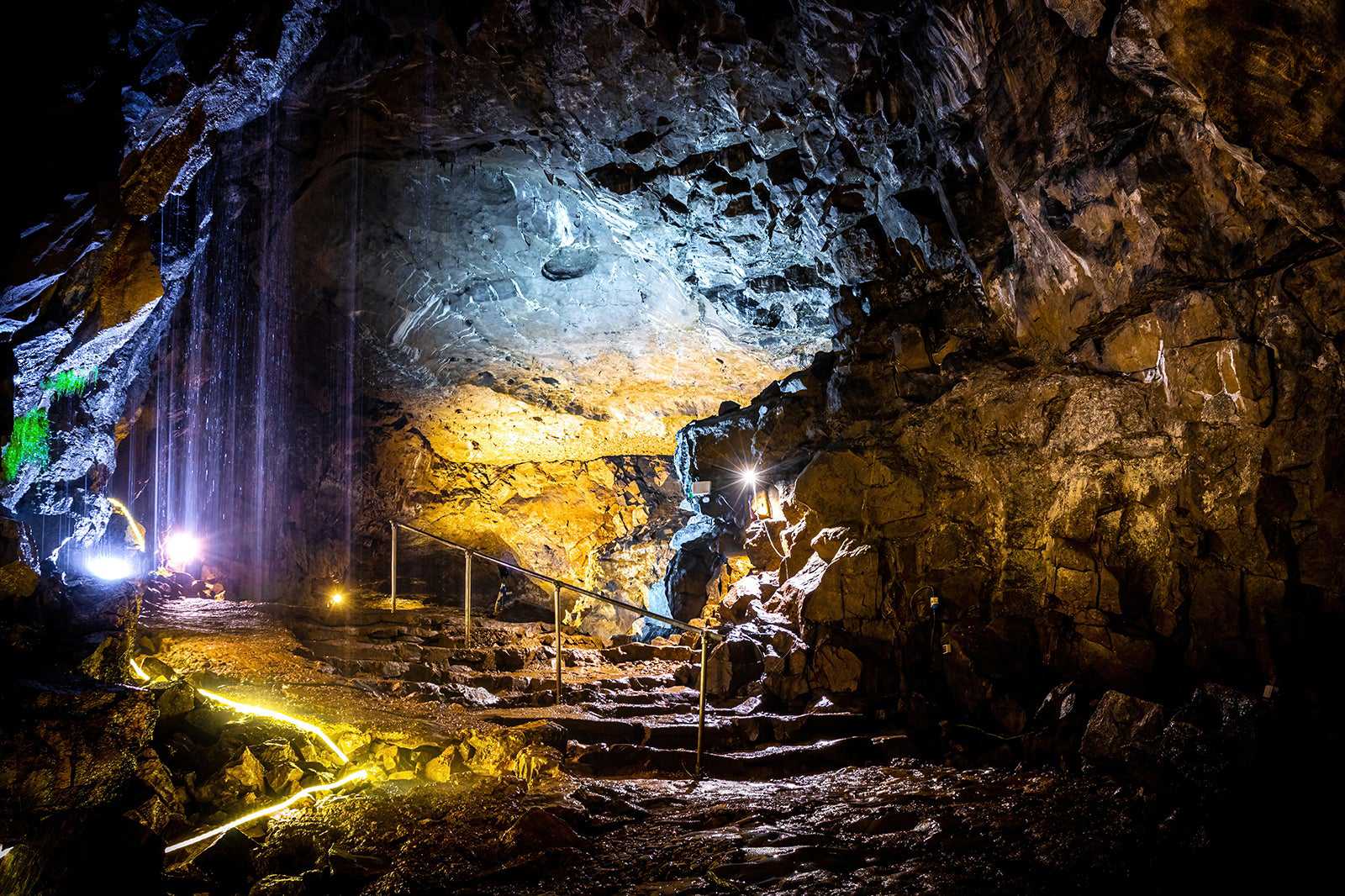
- Geschichte
- Foto
- Außergewöhnliche Erfahrungen
The Blue John Cavern is known for its underground chambers filled with marine fossils and unique rock formations. It’s named after Blue John, a semi-precious mineral with yellow, blue, and purple bands. Miners usually enter the caves in winter to harvest the deposit, which is over 250 million years old. An onsite gift shop sells jewellery and accessories made from the minerals.
You can join guided tours of the cave system – each session lasts between 45 minutes and 1 hour. Note that you’ll have to climb and descend 245 steps to reach the chambers. The Blue John Cavern is in the Peak District’s Castleton, about 30 miles northwest of Derbyshire.
Lage: Cross St, Castleton, Hope Valley S33 8WH, UK
Öffnungszeiten: Daily from 9.30 am to 5.30 pm
Telefon: +44 (0)1433 620638
Karte - 2
Creswell Crags
Cave art and fossils dating back to the last Ice Age
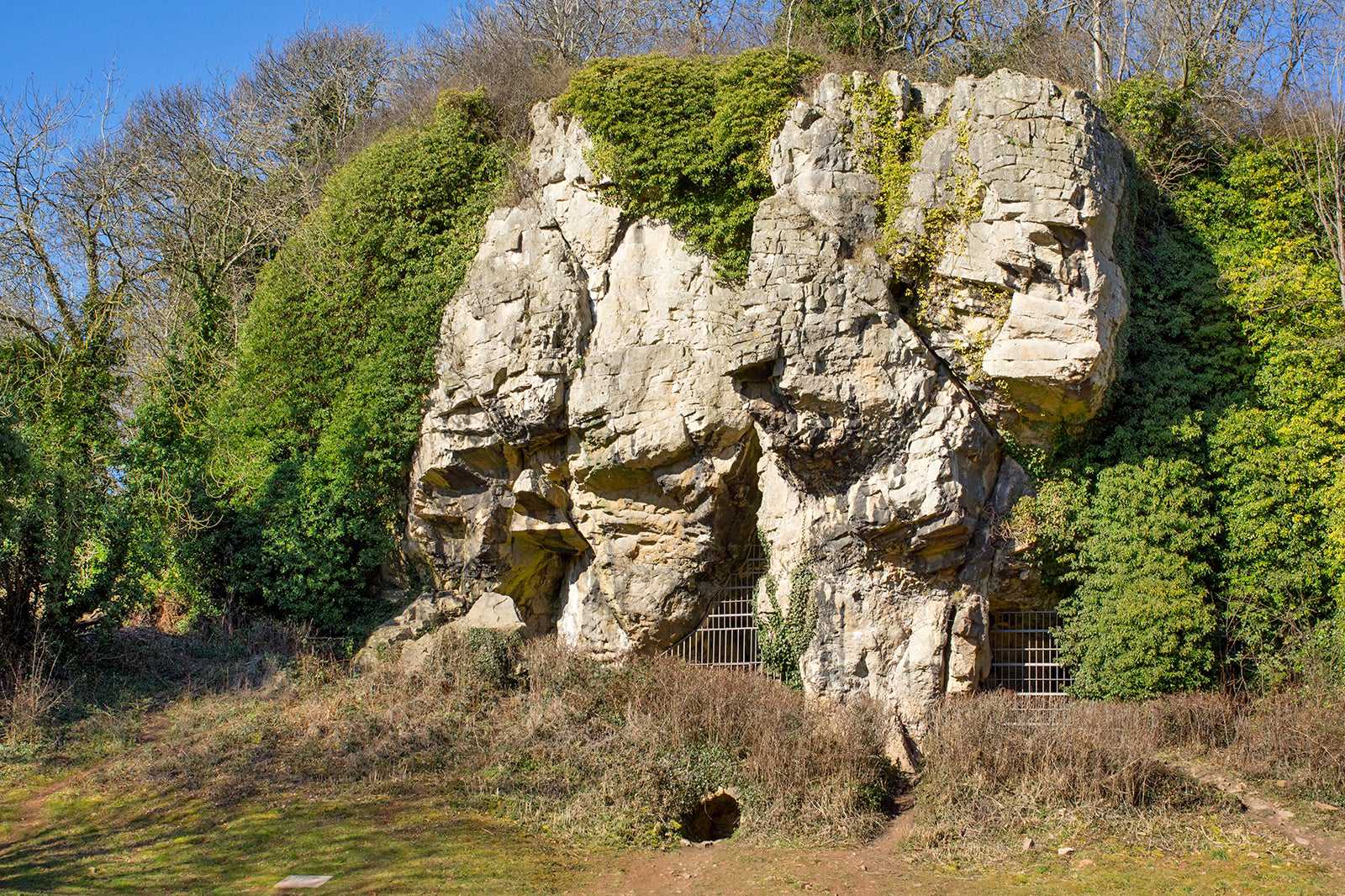
- Budget
- Foto
- Außergewöhnliche Erfahrungen
Creswell Crags is a limestone gorge on the Derbyshire/Nottinghamshire border. Its caverns, which date back to prehistoric times, contain the richest cluster of Middle Palaeolithic archaeology in Northern England. The gorge also contains Europe’s northernmost cave art, which mostly depicts different bird species, reindeer, and bison.
You can explore its 4 main cavities to see ancient items such as flint tools and animal fossils. There’s also an onsite museum displaying objects excavated at Creswell Crag, as well as temporary exhibits on wildlife, archaeology, history, and art. The gorge is about 20 miles southeast of Sheffield. Entrance to the site is free.
Lage: Crags Rd, Creswell, Worksop S80 3LH, UK
Telefon: +44 (0)1909 720378
Karte - 3
Peak District's aircraft wrecks
Discover the remains of over 150 ill-fated flights
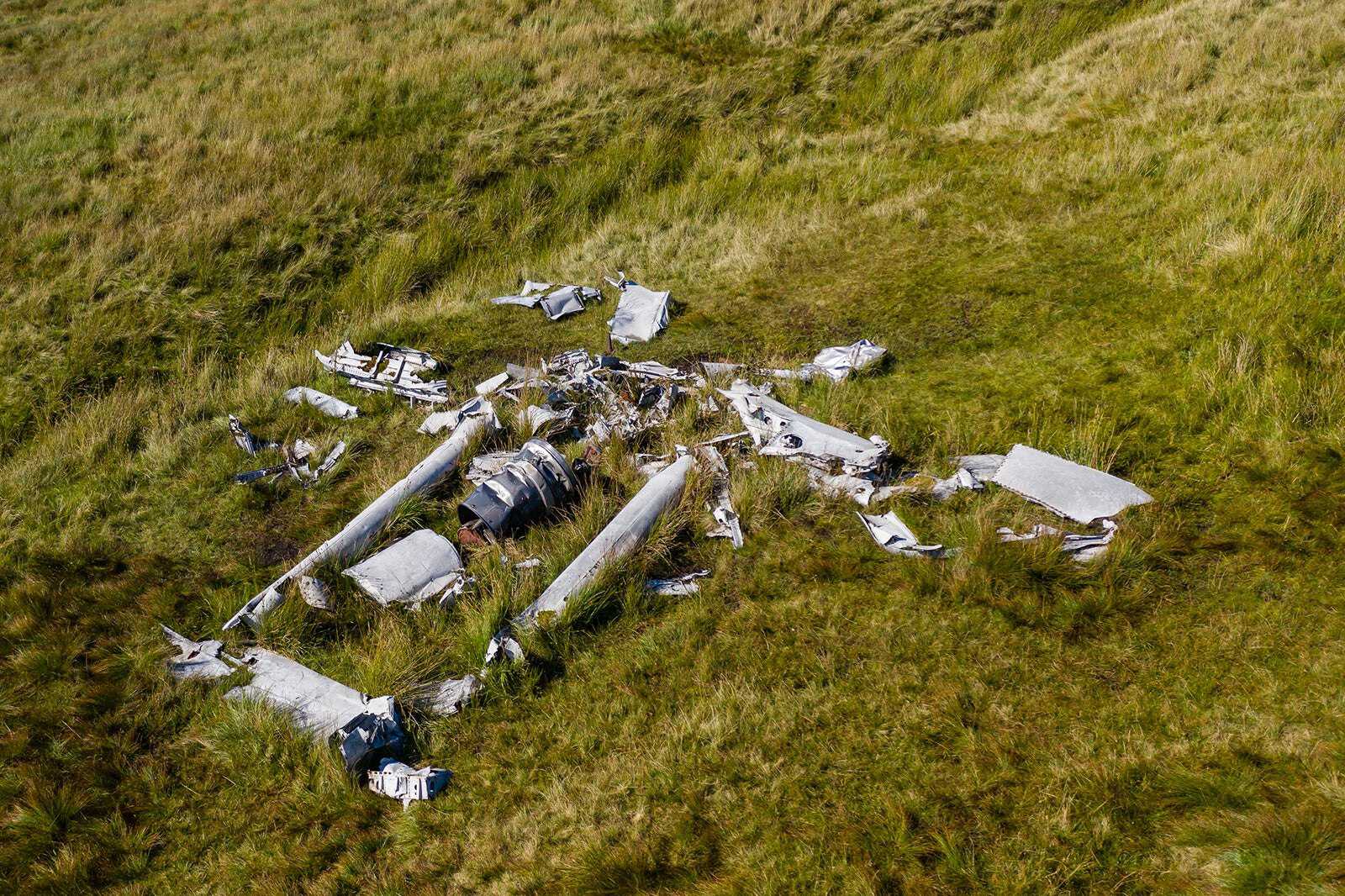
- Budget
- Geschichte
- Foto
- Außergewöhnliche Erfahrungen
Aircraft wrecks dot the Peak District as a grim reminder of the perils of overflying such a mountainous area. Over 150 aircraft crashed in the Peak District over the course of the 20th century, mostly after WWII when the area was surrounded by airfields and often used to train aircrews in low-altitude flying.
Noteworthy crash sites include that of an RB-29 Superfortress near Bleaklow Head. The reconnaissance version of the famous American bomber crashed while relocating to a new base at Burtonwood, killing all 13 crew. You’ll also find the wrecks of a C-47 Dakota and an Avro Lancaster nearby. There are a further 11 wrecks on Kinder Scout, with aircraft types ranging from a Vickers Wellington bomber to 2 F-86 Sabre jet fighters. Please note that it's illegal to tamper with the wrecks.
- 4
Well dressing
A tradition dating back to pagan times
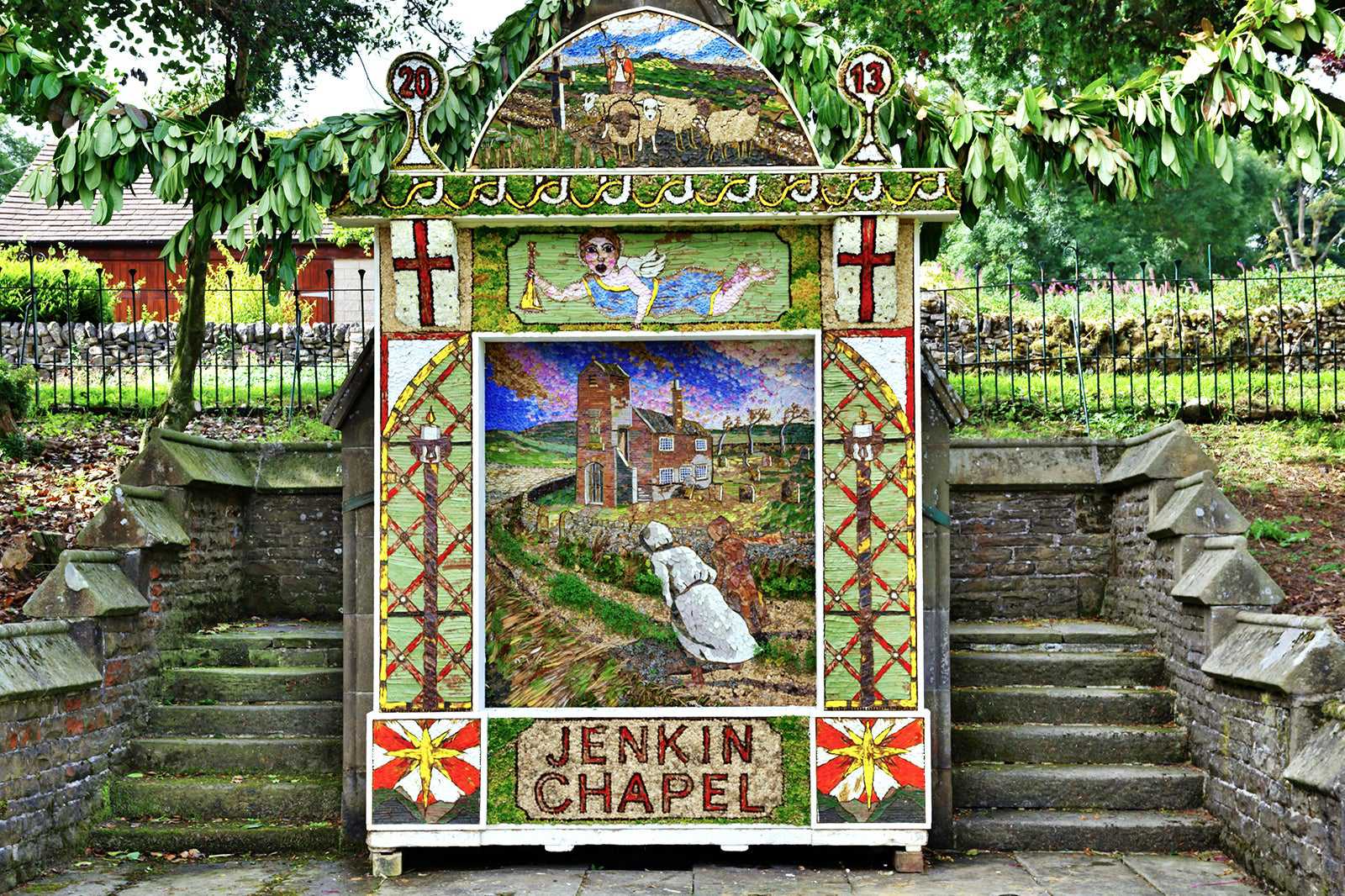
- Budget
- Geschichte
- Foto
- Außergewöhnliche Erfahrungen
The tradition of well dressing was common in rural England until the early 19th century. Locals decorate their water sources like springs and wells with pictures made from living plants and flowers. The practice usually still takes place in spring and early autumn, but the villages of Tissington and Endon often dress their wells around May.
While well dressing was a pagan belief of pleasing gods that supplied water, it’s now a form of showcasing the locals’ artistic talents and attracting tourists to the villages. As real flowers and plants are used for the practice, the designs usually last about a week before they wilt.
- 5
Buxton’s Blue Lagoon
Don’t take a dip, no matter how tempting it looks!
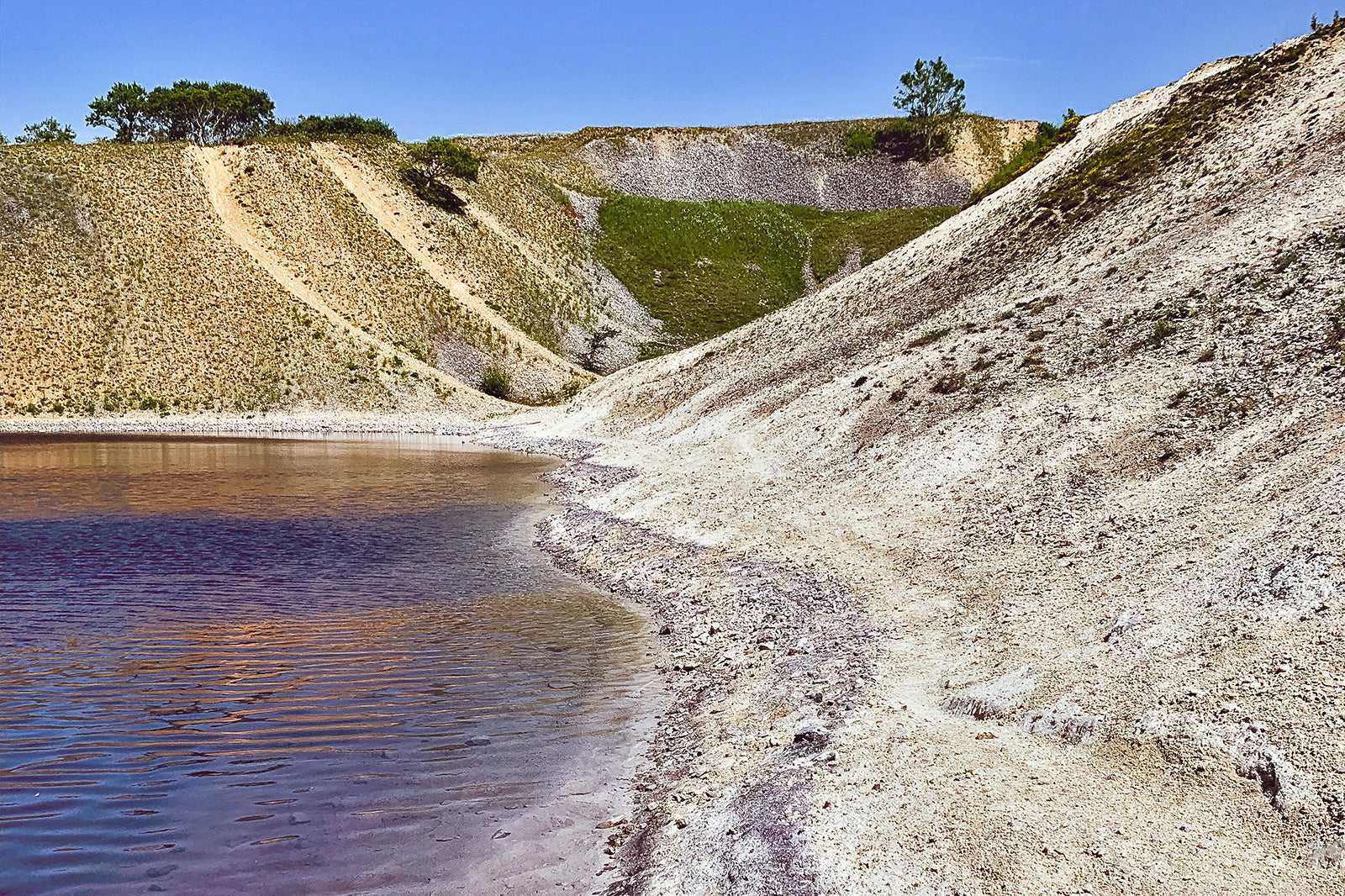
- Budget
- Foto
- Außergewöhnliche Erfahrungen
Buxton’s Blue Lagoon is nothing like as delightful as it sounds, especially since its colour comes from a dye put in the water to warn people away. The “lagoon” was formed by extensive quarrying of limestone. Calcium oxide left behind from this industrial past makes the water extremely alkaline.
Aside from the warnings about the risk of swimming in water that’s nearly the same pH as bleach, other signs warn of the car wrecks, dead animals, rubbish and other hazardous waste known to inhabit the lagoon. Despite that, people persisted in swimming here until the local council added coloured dye to the water. The result is a blue-black sort of colour that will stain your skin if you decide to take a dip – yet another reason not to even consider doing so. The bizarre watercolour against white cliffs is pretty, but you should keep a safe distance from it.
Lage: Harpur Hill, Buxton SK17 9HP, UK
Karte - 6
Toad’s Mouth
A giant Stone Age toad between Sheffield and Derbyshire
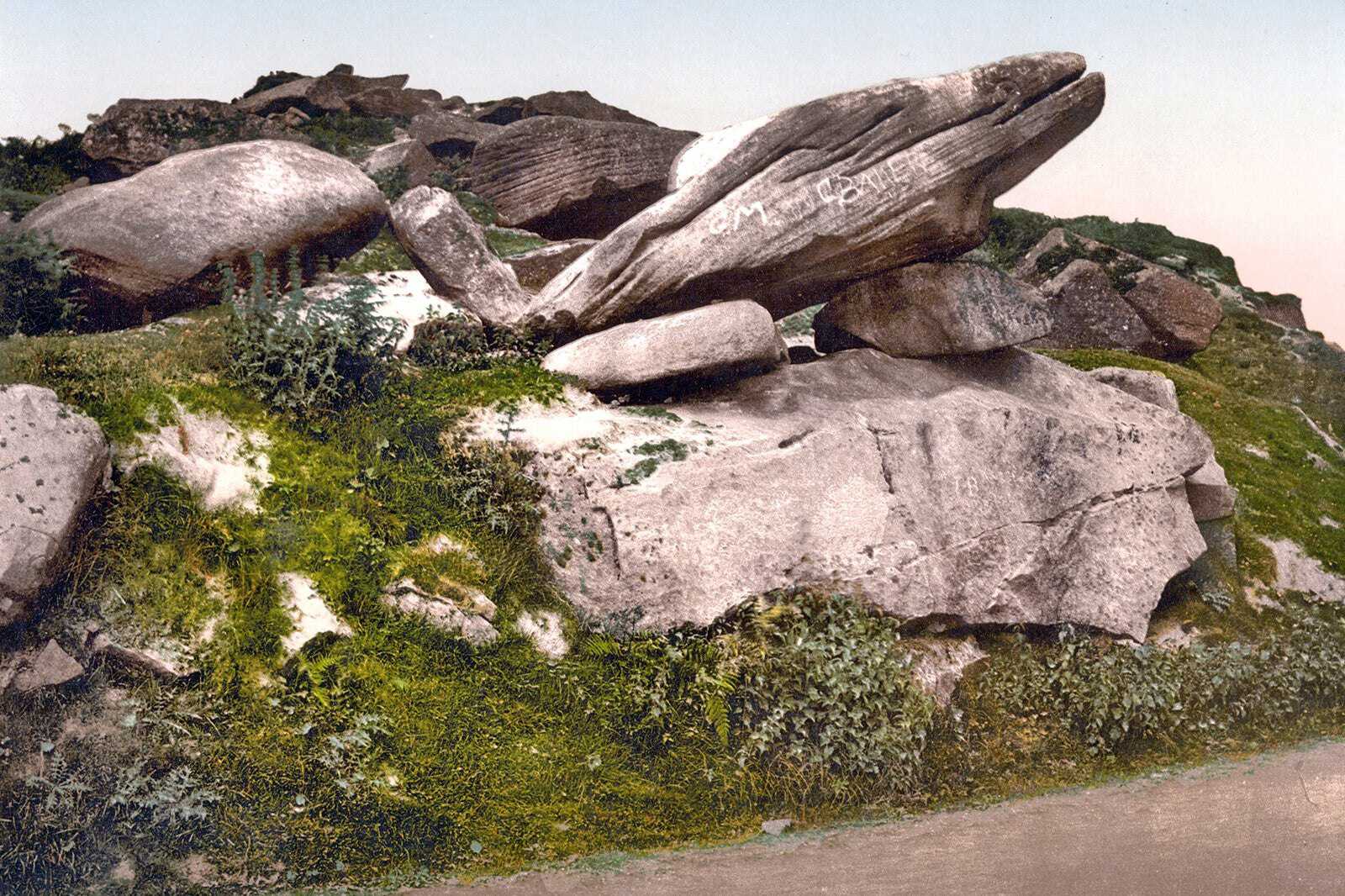
- Budget
- Geschichte
- Foto
- Außergewöhnliche Erfahrungen
Toad’s Mouth is a rock formation in the Peak District that dates back to prehistoric times. It’s at Burbage Bride, near the Sheffield-Derbyshire boundary. While the rock (and surrounding field) is believed to be from the Mesolithic Age, locals are unsure when the toad’s eye was carved into the formation.
The area surrounding Toad’s Mouth has many unfinished millstones and milestones from the 17th to 19th centuries. You can also enjoy views of Hathersage Moor, the Higger Tor peaks and the Carl Wark. On clear days, you can see the 1,696-ft-tall cliff face of Mam Tor in the distance.
Lage: Longshaw, Sheffield S11 7TZ, UK
Karte - 7
Little John’s grave
Here lies Robin Hood’s friend
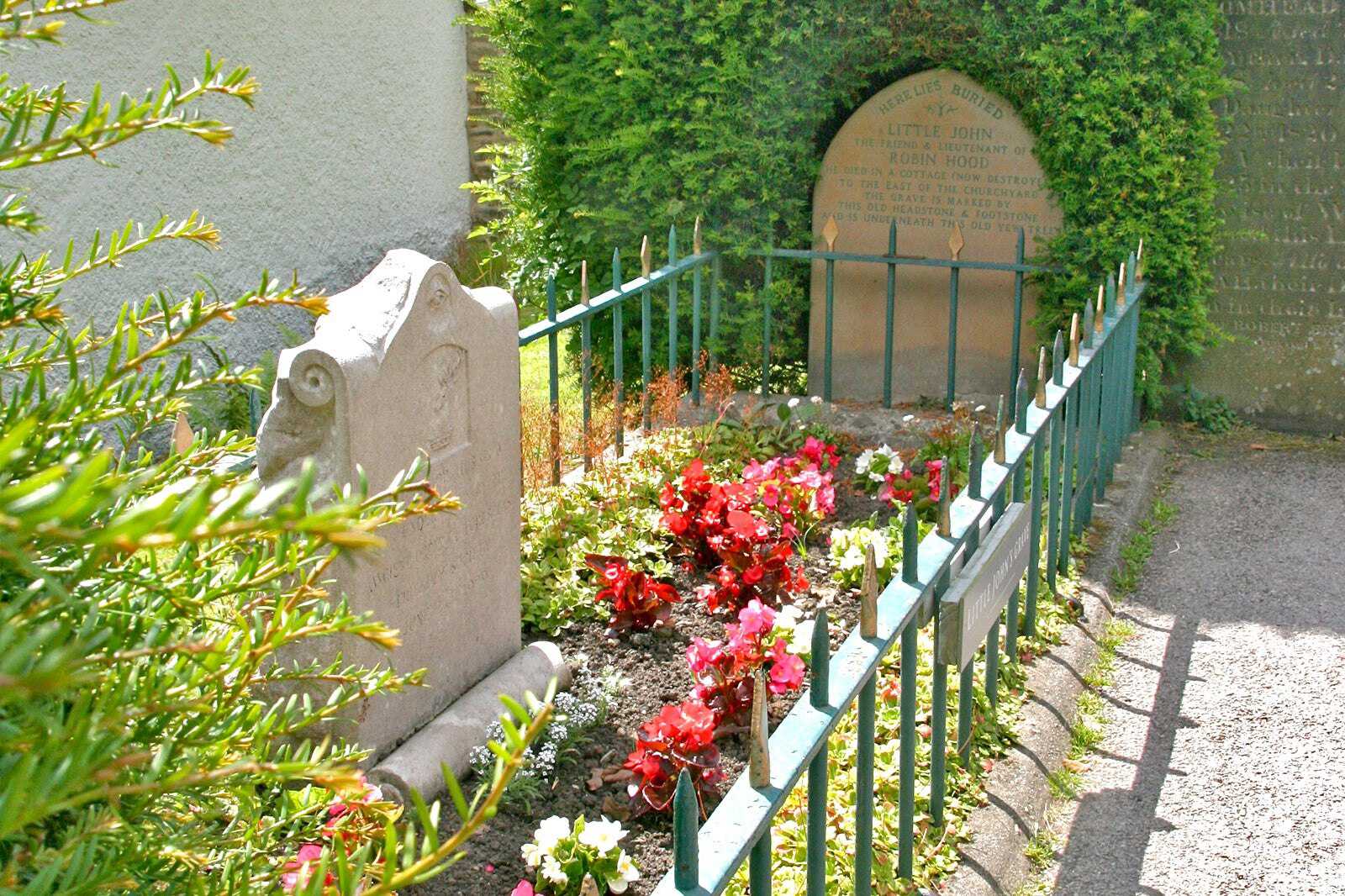
- Budget
- Geschichte
- Foto
- Außergewöhnliche Erfahrungen
Little John’s grave supposedly marks the final resting place of Robin Hood’s most famous Merry Man. The stone is in the graveyard of St Michael’s Church in Hathersage. Given the lack of historical evidence that Little John even existed, there’s no guarantee that the man himself lies beneath.
The inscription on the gravestone explains that Little John died in a now-destroyed cottage east of the churchyard. However, a local legend suggests that said cottage is actually the Grade II-listed Nether House in Offerton, which is a short distance west of Hathersage, on the other side of the River Derwent.
Lage: Church Bank, Hathersage, Hope Valley S32 1AJ, UK
Telefon: +44 (0)1433 410079
KarteFoto von Mike Peel (CC BY-SA 4.0) bearbeitet
- 8
Biddulph Grange Garden
An English garden inspired by Egypt, China, and the occult

- Budget
- Paare
- Familien
- Foto
- Außergewöhnliche Erfahrungen
The Biddulph Grange Garden is a restored Victorian landscape by British horticulturist, James Bateman. The garden contains his collection of plants from various parts of the world, including Egypt and Italy. You’ll walk past various types of plants, including dahlias, azaleas, and rhododendrons.
A must-see is the China garden, which has stone gateways and sculptures, a pagoda, wooden bridges, and a joss house. It also houses Britain’s oldest surviving golden larch, which Bateman transported from from China in the 1850s. The Biddulph Grange Garden’s Egypt garden is equally impressive, featuring a pyramid, 4 stone sphinxes, and topiary obelisks.
Lage: Grange Rd, Biddulph, Stoke-on-Trent ST8 7SD, UK
Öffnungszeiten: Hours vary by season
Telefon: +44 (0)1782 517999
Karte - 9
Betty Kenny’s Tree
The tree that inspired ‘Rock-a-bye Baby’
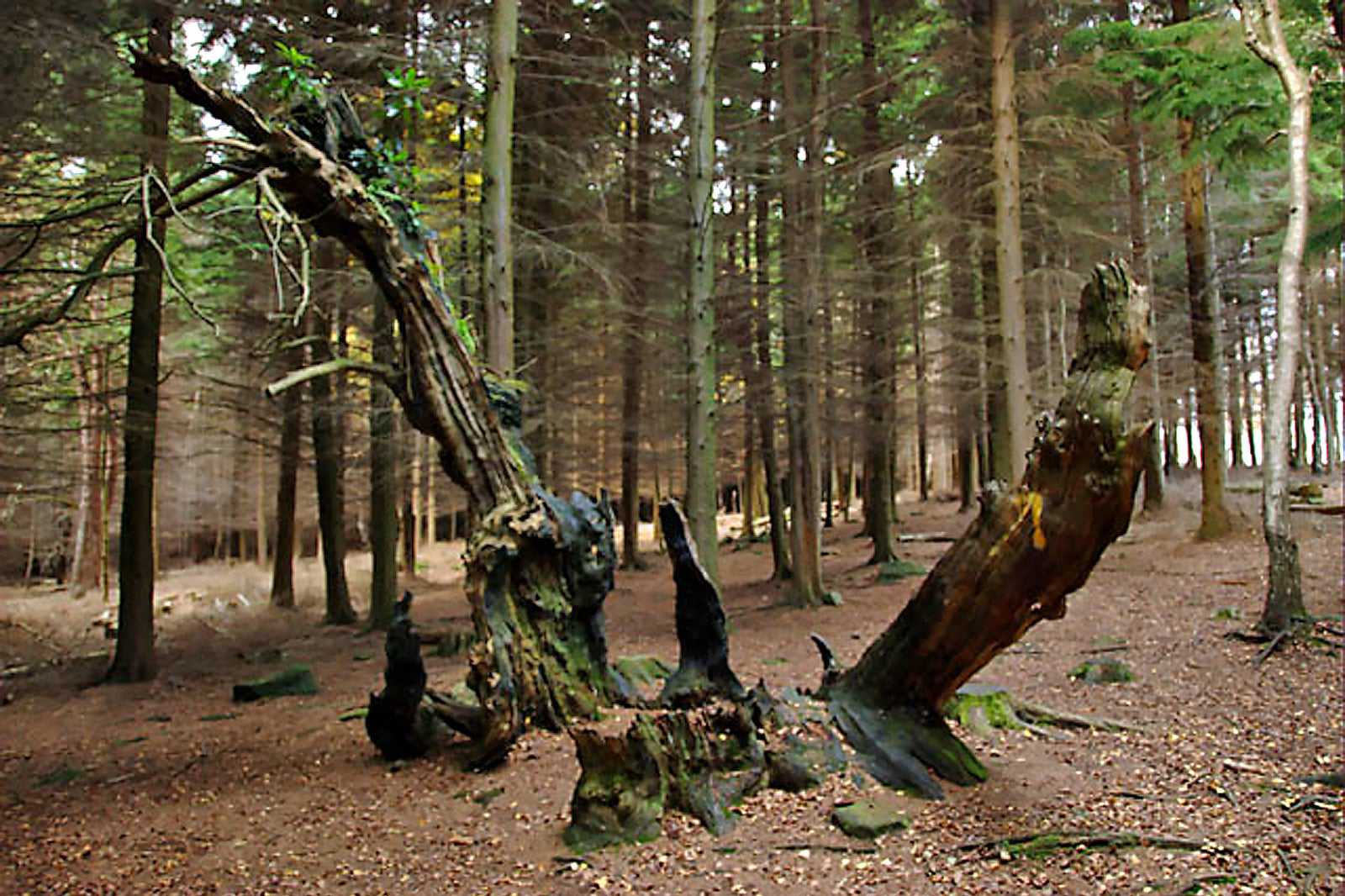
- Budget
- Familien
- Foto
- Außergewöhnliche Erfahrungen
Betty Kenny’s Tree seems like a nothing-special, semi-rotten, slightly charred old yew tree near the historical village of Crich, but it has some surprises in store. Thought to be about 2,000 years old, it supposedly inspired the Rock-a-bye Baby nursery rhyme.
The story goes that a woman named Betty Kenny lived in the woods here in the late 1700s with her husband and 8 kids. They worked as charcoal burners and supposedly used the tree branches for shelter. One of the kids is even said to be buried beneath the tree.
Lage: Alderwasley, Belper DE56 2SR, UK
KarteFoto von Jerry Evans (CC BY-SA 2.0) bearbeitet
- 10
Memorial to Tip the Faithful Sheepdog
An excellent view with a wonderful story of loyalty
- Budget
- Foto
- Außergewöhnliche Erfahrungen
Tip was a sheepdog that displayed a level of devotion beyond all expectation, remaining with the body of her dead master for 15 weeks. Her 86-year-old owner, Joseph Tagg, had gone out onto the nearby Howden Moors on 12 December 1953 and never returned. Despite hundreds of hikers and rescue workers searching for him, it wasn’t until 105 days later, on 27 March 1954, that his body was found, guarded by Tip.
Tip lived for only a few months longer – long enough to be honoured by the Canine Defence League. She was buried next to the Derwent Dam, just north of the viewpoint and Visitors’ Centre. A gravestone was erected to tell her remarkable story.
Lage: Derwent Ln, Bamford, Sheffield, Hope Valley S33 0AQ, UK
Karte
